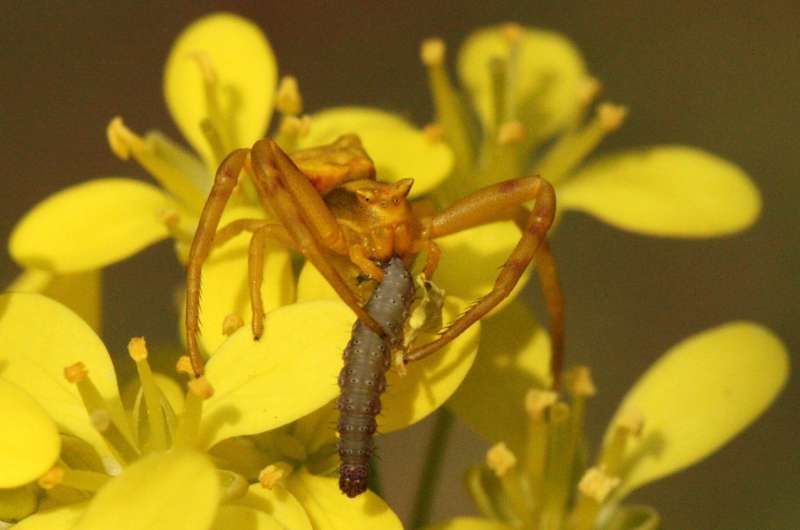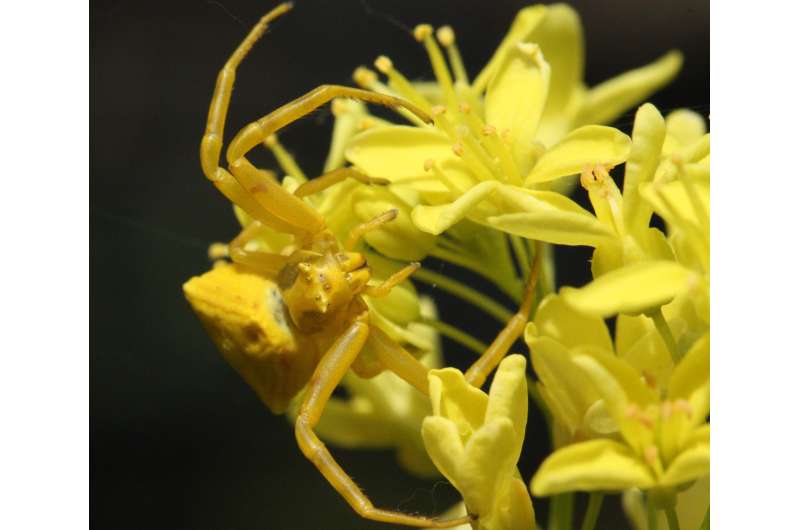When enemies come to help

"The enemy of my enemy is my friend." Now, researchers at the University of Zurich show that this principle also holds for crab spiders and flowering plants. While it's true that the spiders eat or drive away useful pollinators such as bees, they're also attracted by floral scent signals to come and help if the plant is attacked by insects intent on eating it.
Interactions between organisms such as plants and animals can be found everywhere in nature. Anina Knauer and Florian Schiestl, a professor at the Department of Systematic and Evolutionary Botany of the University of Zurich, have taken a closer look at one such instance: the interaction between crab spiders and the buckler-mustard, a yellow flowering plant common in Europe.
Crab spiders are predators that lie in wait for their prey on the flowers. It was previously assumed that these spiders harm the plant, because they catch pollinating insects or discourage them from visiting the flowers. The ecologists at UZH have now discovered a surprising phenomenon: "Crab spiders find the plant by following the scent of its flowers. They do so using β-ocimene, the floral volatile that also attracts bees," says Schiestl.
If crab spiders are sitting on the flowers, fewer bees will visit. But the spiders don't just eat pollinators—they also eliminate plant-eating insects and their larvae that feed on the flowers or fruit and damage the plant. This way, the crab spiders benefit the plant, bearing out the principle that "the enemy of my enemy is my friend." Apparently, the benefit is so great that when attacked by florivores, the plants give off larger amounts of the floral volatile that attracts the spiders. This "cry for help" actually works—in response, the spiders are increasingly likely to visit the flowers that are being attacked, where they find prey.

The study shows that the effect of interacting organisms is highly dependent on the ecological context. But in complex ecosystems, the consequences can't always be predicted. This means that the disappearance of existing interacting partners or the appearance of new ones can have unforeseeable implications for individual members of an ecosystem. "For this reason, it's important to better understand the interactions between organisms and the consequences to be able to apply the insights in the protection of ecosystems or organic farming," concludes Florian Schiestl.
More information: Anina C. Knauer et al, Crab spiders impact floral-signal evolution indirectly through removal of florivores, Nature Communications (2018). DOI: 10.1038/s41467-018-03792-x
Journal information: Nature Communications
Provided by University of Zurich



















